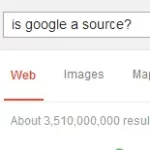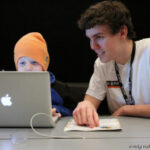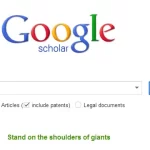
”Imagine a world in which every single person on the planet is given free access to the sum of all human knowledge. That’s what we’re doing.”
These oft-quoted words from Wikipedia founder Jimmy Wales demonstrate an interesting paradox: how can an information source be lauded as a modern-day Library of Alexandria while at the same time forbidden in many schools all around the world?
Such is the challenge of a massive, collaboratively edited encyclopedia in the digital age.
Founded in 2001, the project has grown at a staggering pace and today contains over 23 million articles in 285 languages. Wikipedia is among the most highly trafficked websites in the world, and it sometimes seems difficult to find a search engine query for which Wikipedia does not show up as one of the first few results.
But can Wikipedia be trusted?
How Wikipedia Ensures Trustworthy Content
The common reasoning against the online encyclopedia is that since we cannot verify the identity of contributors and that anyone can change an entry at any time, the words that you read might be completely false.
A traditionally published resource such as the Encyclopedia Britannica, on the other hand, accepts contributions only from proven, fully identified experts in their respective fields and goes through a meticulous editing and fact-checking process before anything is published.
After we take a closer look at how Wikipedia operates, however, it becomes evident that this immediate dismissal is an oversimplification.
Wikipedia has a wide variety of articulate policies, ranging from libel and page deletion to neutral point of view and protecting the biographies of living persons, as well as sophisticated techniques for dealing with inaccuracies and misinformation, which have been steadily improving over the years.
In general Wikipedia is protected by special users known as administrators, who in addition to making edits have also earned the privileges of blocking abusive accounts or IP addresses from editing an entry and protecting and unprotecting certain pages. But the size and scope of the encyclopedia means that human administrators alone can’t police the entire work.
This is why Wikipedia also employs a fleet of bots, automated programs that “delete vandalism and foul language, organise and catalogue entries, and handle the reams of behind-the-scenes work that keep the encyclopaedia running smoothly and efficiently and keep its appearance neat and uniform in style.”
This editorial process of admins and bots may differ greatly from how a traditional encyclopedia is created, but it still removes pranks or vulgarities almost instantly and with a little time will also catch misinformation or biased edits.
The wiki model also allows for additional features that traditional sources don’t have, such as a public “talk” page where users can discuss bias and the organization of articles, as well as a publicly accessible revision history that shows who made which changes at what time.
Weaknesses and Inconsistencies of Wikipedia
Despite its many policies and strict content standards, Wikipedia still suffers from a lack of a consistent voice, which is a key factor of any good reference work. Different articles have widely varying reading levels: some are too basic while others are far too technical for the layperson.
In addition, inconsistencies in the style of different entries and the facts that are emphasized can lead to problems, as explained by PCMag:
“Search for Microsoft on Wikipedia and you’ll find a voluminous entry, which starts with an unusual diatribe. It calls Microsoft an ‘American multinational corporation’ which sounds oddly sinister … talks about its dominant position in the OS and offices suite markets and then spends a paragraph talking about Microsoft’s alleged monopolistic practices and troubles with U.S and European governments. The author is clearly trying to make a point about Microsoft. Is that the role of an encyclopedia?”
Apple’s Wikipedia entry, on the other hand, mentioned no such controversies and instead summarizes its history and products in a more neutral manner. (It should also be noted that this PCMag article was published in January 2011 and since then both pages have been edited numerous times; the main point about style inconsistencies is what matters. Also, PCMag itself may have its own vested interest in issues of Microsoft vs. Apple.)
This issue gets at perhaps the largest challenge to Wikipedia: the abuse of the system by users affiliated with or otherwise invested in the topics they are editing.
First, in many cases the motivations and the agendas of the administrators have been called into question. Another part of the problem relates to users who use the encyclopedia as nothing more than a vehicle to benefit their own web properties.
Wikipedia is based on properly referenced secondary sources, and a backlink from Wikipedia can have a major search engine benefit for a site. Many webmasters advocate stealthily editing Wikipedia articles with the sole purpose of sneaking in a reference to their own sites.
One article explained that this process has gotten more difficult in recent years as a result of Wikipedia’s increasing editorial scrutiny, but described an elaborate Wikipedia black market full of people “who have established Wikipedia accounts who (for a fee) will edit an entry to get your link in there.”
The author went on to describe in detail how the scheme works: “An established account should be at least a year old and have at least 1,000 successful edits so if you’re going to pay someone you should check on those two stats. People who have established accounts have a much easier time editing Wikipedia entries because the reviewers are busy moderating all the revisions from noobs and tend to let the established account edits slide by without a ton of oversight.”
These same types of Wikipedia writing services could be used to inject misinformation or opinionated views into articles.
In addition to this overt abuse, there is also a larger clash between Wikipedia and companies that isn’t quite so black and white. This gets us back to the difference between the Microsoft and Apple entries.
Company information on Wikipedia is often out of date, misleading or even flat-out untrue, but by Wikipedia policy public relations professionals are usually forbidden from editing those articles because of their potential for abuse.
One blogger wrote an open letter to Jimmy Wales calling for a rethinking of this policy, pointing out that a few bad apples are not indicative of the PR profession as a whole, and activists are often free to smear a company or cause while a representative never gets a chance to respond.
Other critics go so far as to doubt that Wikipedia can ever be a reliable source for any politically charged topic. Think of entries like “abortion,” “gun control,” or “global warming” and the divisive perspectives that must somehow be concisely summarized without succumbing to any bias.
Of course, this is also a problem for traditional encyclopedias, but the collaborative and dynamic nature of Wikipedia makes it a much more difficult proposition.
And Wikipedia naturally allocates more editorial scrutiny to these big-time topics, but the identity of the admins and moderators can still strongly influence what gets changed and what doesn’t.
A former editor of Wikipedia described the interesting case of a politically motivated controversy relating to the content that appeared in the entry for “Indian Mathematics.”
Another criticism of the project is the fact that only 9% of Wikipedia editors are women and that gender disparity affects the types of topics considered deserving of an article under the “notability” guideline. (Read this Slate article for more.)
Properly Using Wikipedia as a Research Source
Finally, the immediate rejection of Wikipedia as a trustworthy source ignores the fact that we have the power to use it in different ways. Even Wales has discouraged the academic use of Wikipedia, as in directly citing an entry as support for a research paper.
But there are many ways in which students can use Wikipedia as a starting point for research: gathering basic background facts, learning new keywords they might use in subsequent searches, and using the references at the bottom of an entry to find credible research about the topic. If you’re using Wikipedia in this way, its free, fast and comprehensive nature makes it a wonderful, unmatched resource.
Every once and a while some professor pens an op-ed piece railing on the encyclopedia for refusing to recognize his or her traditional “expertise” with regards to the editing of an entry. Sometimes these claims are more justified than others, but usually the issue boils down to two things: Wikipedia’s policies relating to “undue weight” and secondary sources vs. original research; and the abuse of power on the part of Wikipedia admins. Rarely are there clear conclusions but a vigorous debate inevitably emerges in the comment sections, as in this Chronicle piece.
Some professors have even deliberately vandalized a Wikipedia entry to prove a point, or even assign their students to create a hoax of their own, although in the most notable case the effort was thwarted by the social networking site Reddit.
Wales deplores such activities, likening them to “dumping trash in the streets to test the willingness of a community to keep it clean.”
But on the other side, some educators are finding creative ways to bring Wikipedia into the classroom by building it up, not tearing it down. These include a University of Utah journalism professor who allows students to write and edit Wikipedia entries in lieu of a term paper.
This type of assignment both helps the Wikipedia community at large and also often makes the students more motivated, since their writing will be public and have an impact outside of the classroom walls.
Overall, the issue of trusting Wikipedia isn’t so simple. As we have seen, complete distrust is not appropriate given the many mechanisms that protect against abuse, but there are always going to be major challenges for the free online encyclopedia.
Moving forward, the stakes may be even higher. Encyclopedia Britannica has ceased publishing its print edition, long thought to be the standard reference work that helps explain the world. But it’s far from the case that Wikipedia is the only online alternative, as there are other competing projects, such as Scholarpedia and Citizendium, that attempt to fix some of Wikipedia’s authorship and credibility problems with different models.
And Britannica itself is not going anywhere. Without a print version the company now focuses fully on its online encyclopedia, which provides some content for free but operates on a yearly subscription model.
What’s the best way to arrive at the truth: an ongoing discussion between varied but often anonymous contributors or a $69.99/year price tag? The jury is still out.




Leave a Reply